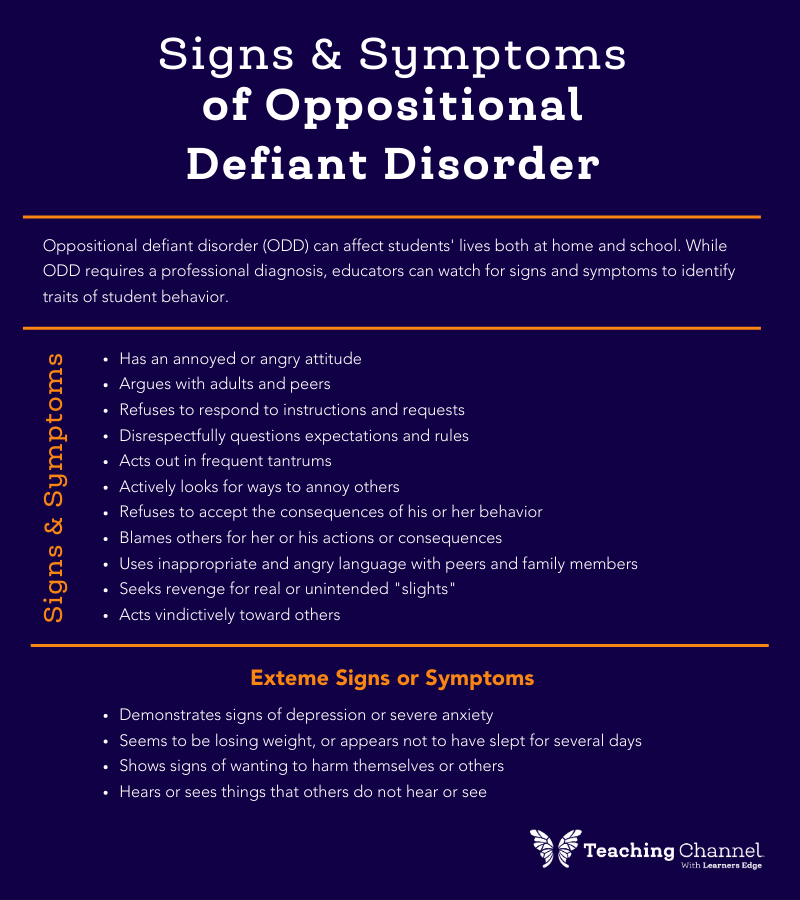Defiant. Stubborn. Obstinate. Inflexible. Argumentative. These are all words often used to describe a student with behavioral needs. Are behaviors you see in your student considered to be Oppositional Defiant Disorder (ODD), or could it be another behavioral issue?
Oppositional defiant disorder (ODD) can affect students’ lives both at home and school. While ODD requires a professional diagnosis, educators can watch for signs and symptoms to identify traits of student behavior.

Signs & Symptoms
- Has an annoyed or angry attitude
- Argues with adults and peers
- Refuses to respond to instructions and requests
- Disrespectfully questions expectations and rules
- Acts out in frequent tantrums
- Actively looks for ways to annoy others
- Refuses to accept the consequences of his or her behavior
- Blames others for her or his actions or consequences
- Uses inappropriate and angry language with peers and family members
- Seeks revenge for real or unintended “slights”
- Acts vindictively toward others
Extreme Signs or Symptoms
- Demonstrates signs of depression or severe anxiety
- Seems to be losing weight, or appears not to have slept for several days
- Shows signs of wanting to harm themselves or others
- Hears or sees things that others do not hear or see
Understanding the root causes of ODD will help you learn to modify your responses to behaviors and help to create a supportive environment. Explore strategies and supports for both school and home in Course 5544: A Guide to Oppositional Defiant Disorder (ODD) and Similar Behavioral Challenges.







